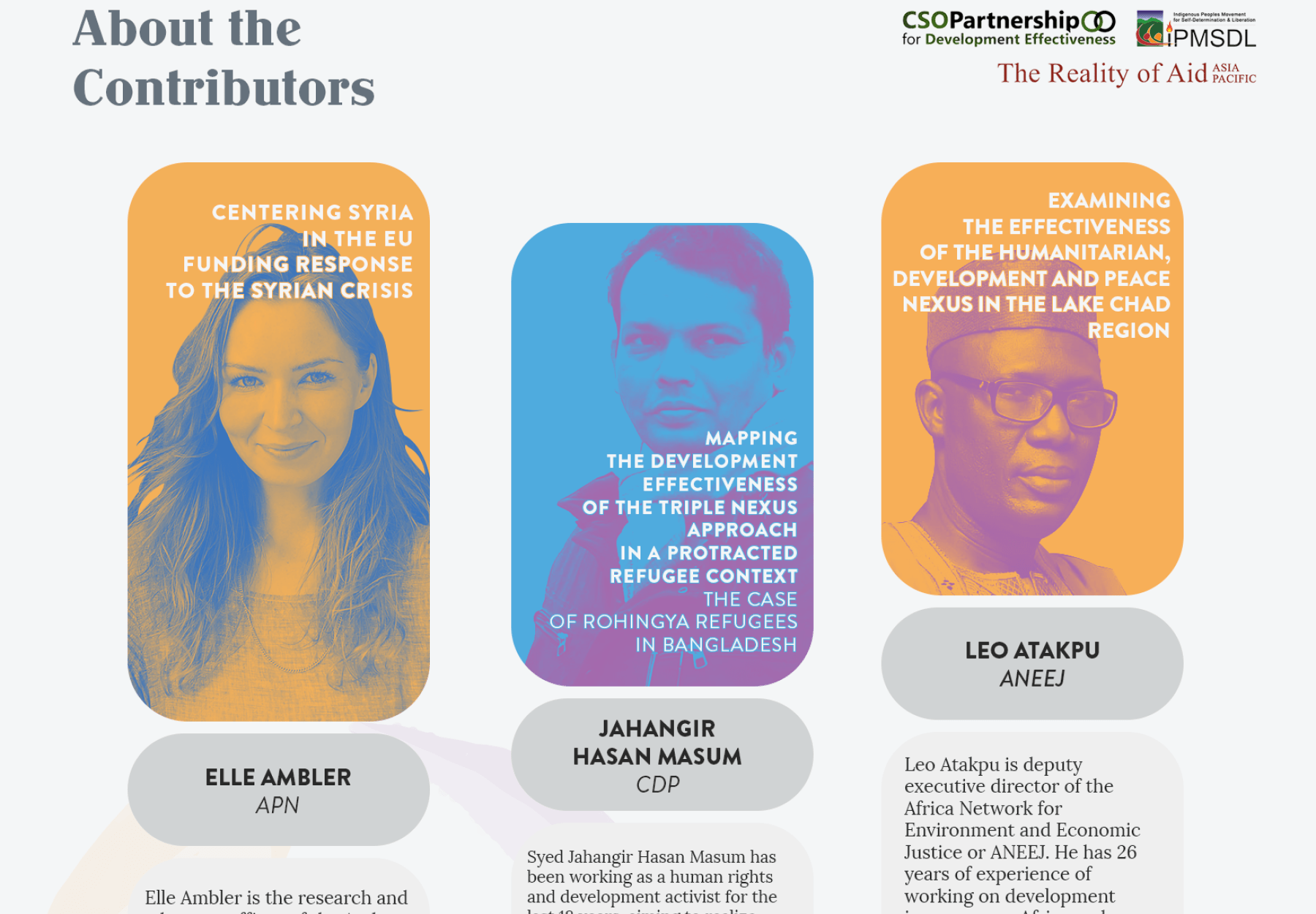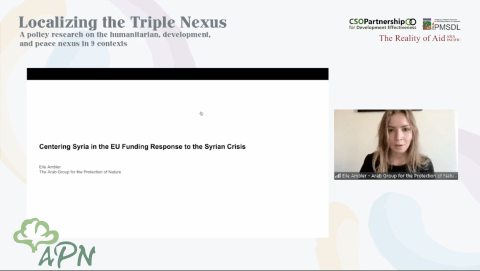
APN’s research and advocacy officer Elle Ambler presented a research paper titled “Centering Syria in the EU Funding Response to the Syrian Crisis” at an event held today by the CSO Partnership for Development Effectiveness (CPDE). The event launched a series of research papers examining the application of the triple nexus (the conjoining of humanitarian, development, and peace-building assistance) in different situations of conflict. Other presentations included discussions of conflicts in Afghanistan, Mali, the Lake Chad region of Africa, Guatemala, Cameroon, the Philippines, Mozambique, and Bangladesh.
Ambler outlined the EU's current funding strategy to the Syrian crisis, in which the vast majority of EU aid goes to host countries (often as part of economic reform efforts), while Syria receives very little assistance and almost exclusively in the form of humanitarian aid. She explained how this split strategy has contributed to unmet humanitarian needs in host countries, despite hosts' efforts, and has contributed to protracted refugee displacement and the prolongation of dire conditions inside Syria. After discussing why the EU has approached the Syrian crisis largely as a refugee crisis, Ambler explained how the triple nexus operates as an orienting tool by proscribing an examination of the points where peace-building is needed. She located the amelioration of issues within Syria, including through broad-reaching development projects, at the heart of an integrated response strategy. Ambler explained how such work in Syria could allow for substantial and sustainable improvements to Syrians’ quality of life, an opening to help heal rifts between segments of the Syrian population, and the means to address the concerns of the >75% of refugees who still hope to return to Syria under improved conditions. Sh e also noted the urgent need to remove US sanctions for such a policy to be enacted and for the region to recover.
Ambler recommended a rebalance of aid in host countries and Syria, led by a coordinated response that favors needs assessments and people-first development over economic reform. She cautioned listeners not to be placated by the use of nexus language in one aspect of a crisis but to examine the overall strategies of donors and ensure that the scope of the crisis under analysis is correct. She also discussed the responsibilities of the EU toward Syrians and the region and warned that similar split funding strategies may become the norm as wealthy countries turn to sanctions as a dominant form of warfare, fail to reform their immigration policies, and continue to see economic incentives in development work.
The research presented today will be published soon by CPDE.
